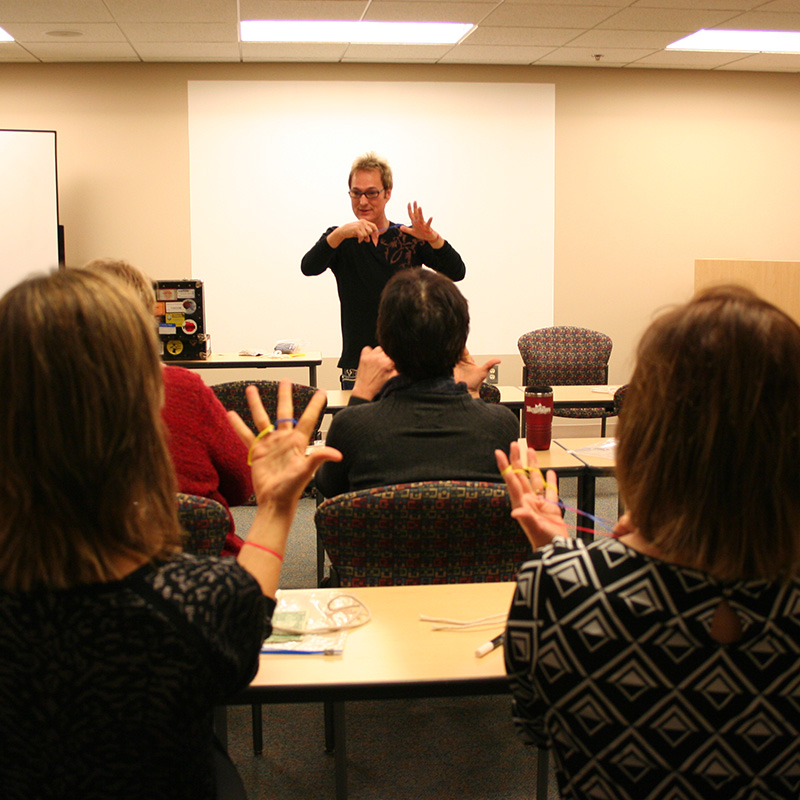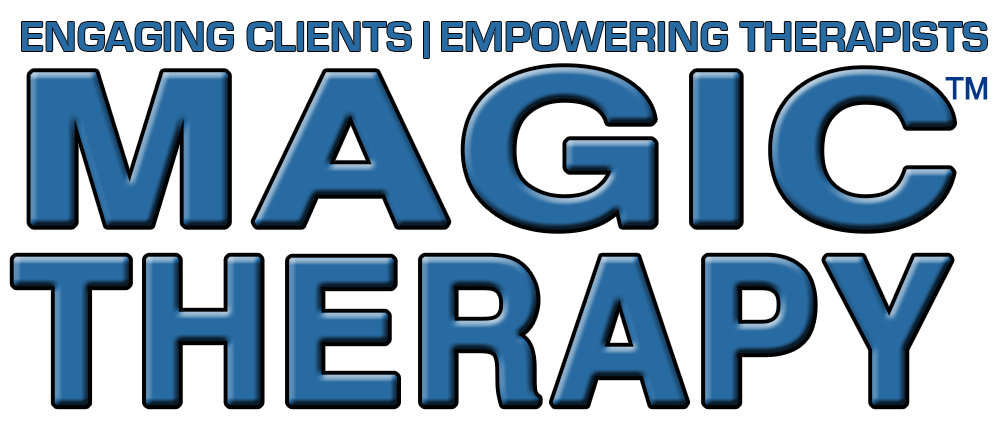Therapists
Magic & Rehabilitation
“Using magic as a therapeutic modality empowers therapists with an exciting new tool to help clients achieve function and measurable goals.”
Debbie M. Fisher, MS OTR/L CHT

One of the biggest challenges therapists face is keeping the client motivated and engaged in the process. The movements required to learn simple magic tricks help clients regain lost physical skills while increasing motivational levels and self-esteem. Learning magic tricks can both engage and continually motivate the client with the learning of each new trick. And because all the tricks in the Magic Therapy program are designed to improve a variety of skills (cognition, motor, communication, and social), the client’s rehabilitative progress is more quickly achieved than in some traditional methods. Each new trick builds on the skills of the last and, once mastered, clients can share this newly found ability with family and friends.
“This is powerful. The interface between any treatment and being effective on humans is motivating them.”
Richard Shields, PT, PhD, FAPTA, Chair of the Department of Physical Therapy and Rehabilitation Sciences
As a result, clients spend much more time voluntarily acquiring a complex and sequential series of motor skills. In a more traditional approach, that they might simply tolerate these activities rather than be fully engaged in them. Clients continue to practice the moves required to do the magic routines; and with each repetitive movement, the skill is mastered translating into better results, improved self-concept, and greater independence.
“The fact that magic tricks do
not look like work is what makes them so effective when integrated into a therapeutic program. The activities are inherently engaging and motivating. And because performing a magic trick is intrinsically rewarding, patients tend to practice the task far more readily and extensively than when performing more tedious exercises designed to achieve the same goals, thus facilitating more rapid achievement of their goals.”
Charity Johansson, PT, PhD, Elon University (NC)
Richard Shields, PT, PhD, FAPTA, Chair of the Department of Physical Therapy and Rehabilitation Sciences

The applications of “magic therapy” address the entire spectrum to include developmental disabilities, mental health, physical disabilities, gerontology, and specific disease related deficits. For many years, magic therapy has successfully been used in acute care, rehab, outpatient hand therapy and pediatrics.
